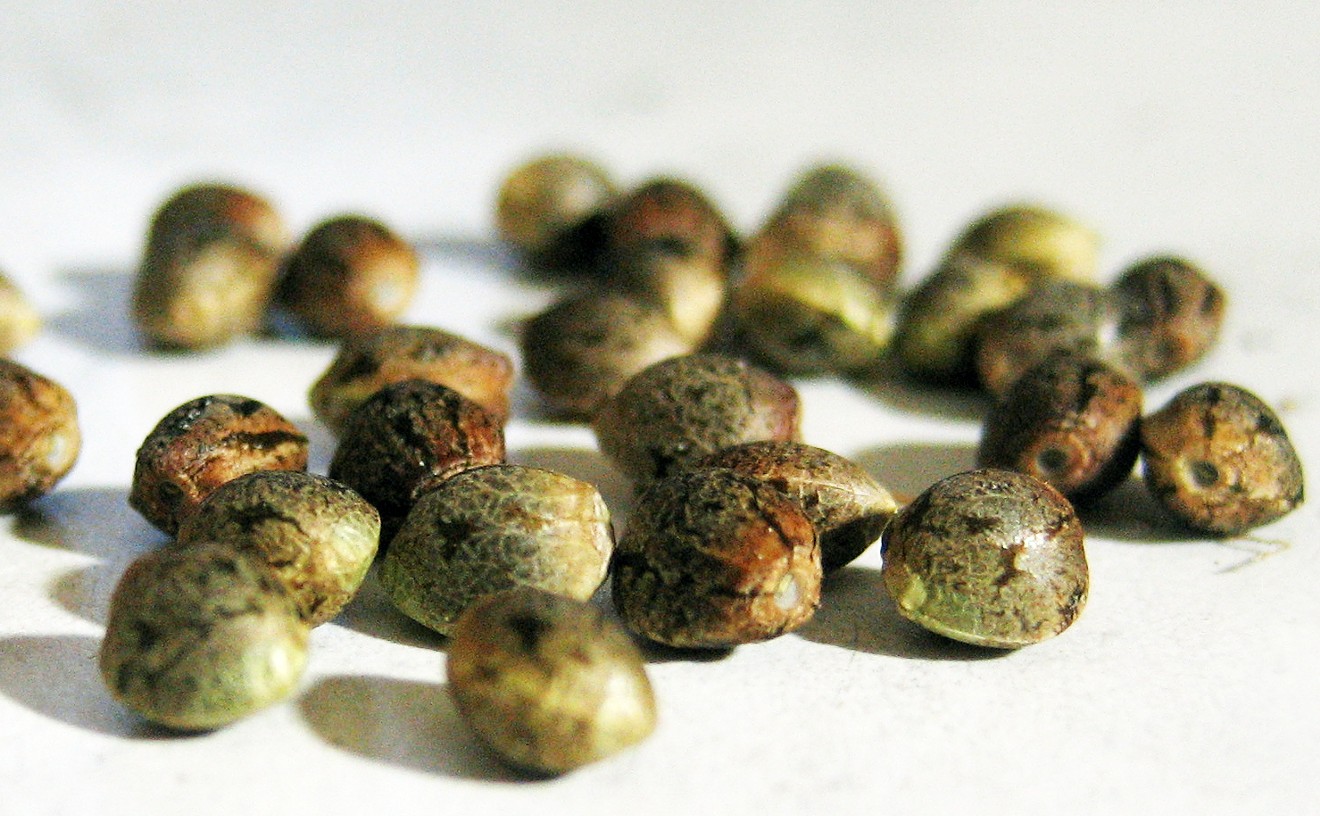In 2007 he jumped into California's medical marijuana industry, where he spent ten years learning about strain breeding and perfecting his plants. After moving to Denver in 2017, Meyer found himself heading the cultivation department of Lucy Sky Cannabis Boutique, which is about to have four dispensaries open under its umbrella. To learn more about the craft of growing cannabis both commercially and personally, we chatted with Meyer about his budding trade.
Westword: What are some differences between growing cannabis commercially and a home-growing level?
Mike Meyer: The first and most obvious difference is the amount of money you need to get started. A home grow, depending on the scale and if it's an indoor or outdoor grow, can cost a couple hundred to a few thousand dollars. A small-scale commercial grow can cost hundreds of thousands of dollars, but more commonly commercial grows cost millions to get up and running correctly. When growing on a commercial level, it is important to consider your patients' needs and your customers' taste, so you will probably have a large spectrum encompassing indica, sativa, hybrid and ruderalis. On the other hand, home growers cultivate for themselves, family and friends and usually will only grow a few cultivar varieties.
Local and state governments are still trying to figure out how to regulate cannabis cultivation, and the federal government won't touch it. How much harder does that make your job?
A common issue that many cannabis businesses have is with banking, credit and loans. Another vital concern is a lack of standardization in testing for cannabinoid and terpenoid profiles. You can test with different labs and get drastically different percentages, which is very misleading to the consumer.

Meyer is responsible for leading the growing operations that supply Lucy Sky's four dispensaries.
Scott Lentz
One can argue that many other cash crops have in fact moved indoors. Vertical indoor farms and hydroponic systems are very common for microgreens, herbs, etc. The benefit of growing indoors is that 99 percent of the environment can be controlled; the downfall is energy consumption. I believe that both will continue to be viable growing options in the future. Both ways can produce a very high-quality product. Due to the ability of managing the environment precisely, indoor growing will generally produce a more potent flower.
What are some of the easiest strains to grow, in your opinion? What about some more difficult strains to grow?
Some of the easier cultivars to grow that we have at Lucy Sky are Pre ’98 Bubba Kush, Durban Poison, Flo and Tahoe Alien, whereas some of the more difficult or finicky cultivars we have are Banana Kush, Super Lemon Haze, Strawberry Glue and Rugburn OG.
What are some safe techniques cannabis growers can use to prevent or treat pests and mildew?
The first step is to maintain a clean cultivation environment; a dirty grow will attract insects, molds and mildews. Prevention and sanitation are imperative, and are the first steps to an integrated pest-management program. I am also a huge advocate for using beneficial insects to eat harmful bugs in your garden. Using foliar sprays with microorganisms is an excellent way to prevent mildews and molds. Lastly, controlling the vapor-pressure deficit in your room can also be a large factor in preventing mildew and mold.












